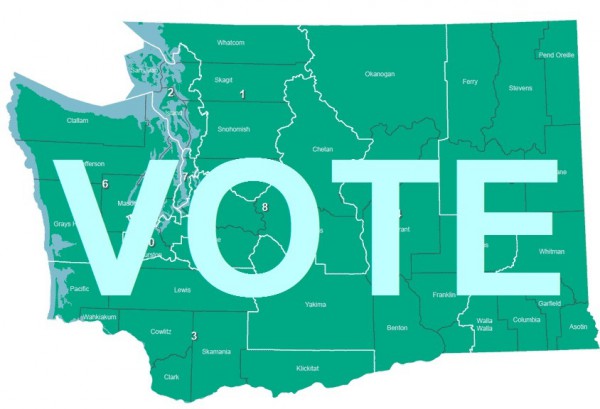Word from AG: Two Advisory Votes on 2014 ballot
Secretary of State Wyman and our Elections Division recently received notice from the Attorney General’s Office that two Advisory Votes will appear on the 2014 General Election ballot this fall.
Advisory Votes are nonbinding measures that let voters say whether they think the Legislature should “repeal” or “maintain” revenue-generating bills that the Legislature passed. Lawmakers used revenue generated from two bills to help balance the state operating budget this year.
The first of this year’s measures is Advisory Vote No. 8. It is the result of Senate Bill 6505, which deals with the elimination of agricultural tax preferences for various aspects of the marijuana industry.
The second is Advisory Vote No. 9 , which is a result of Engrossed Substitute House Bill 1287. That measure imposes the leasehold excise tax on certain leasehold interests in tribal property.
This is the third straight year that Advisory Votes have been on Washington’s General Election ballot. The first two Advisory Votes were placed on the 2012 ballot and Nos. 3 through 7 appeared last year. Because Advisory Votes are nonbinding, the result is not a repeal of the bill, as would be the case with a referendum measure. The Legislature is not required to take action based on the results of Advisory Votes.
Voters can access the full text of the two bills resulting in Advisory Votes No. 8 and No. 9 from the Online Voters Guide, which is on our Elections Division’s webpage. The General Election Voters’ Pamphlet, which will be mailed to Washington residences in mid-October, also will provide Information about the two Advisory Votes this year.
Advisory Votes were created from a little-noticed provision of Initiative 960, approved by Washington voters in 2007. That provision said if lawmakers passed taxes in Olympia, it would automatically trigger a tax advisory vote in the next General Election. I-960 was Tim Eyman’s measure requiring a two-thirds vote in both houses of the Legislature to raise taxes. The State Supreme Court later rejected the two-thirds requirement as unconstitutional.
